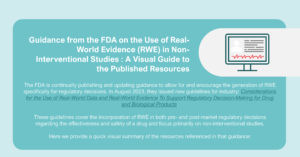With 2021 having drawn to a close, we thought we would take the opportunity to look back on what has been another successful year for Broadstreet. Of course, the pandemic was ongoing, so the year was not without its challenges but as a team that enjoys in-person collaboration, we were happy that for much of this year, most of us were able to be in the office at least a few days a week. We also managed to have an in-person holiday party very early in December, when omicron was still just a Greek letter we weren’t sure how to pronounce; 40 people in the room and no one got COVID! Even a week later we might not have been so lucky (or been allowed to hold the party).
We were also happy to be able to welcome a number of new staff members to the team; it’s always great to bring in new skillsets and fresh ideas. We are so very grateful for the whole team we have at Broadstreet, who have continued to deliver great work under complex circumstances.
In terms of our work, other highlights from this year include working on over 150 projects in 43 different disease areas including 21 different rare diseases. The types of studies we have carried out this year include:
- Early-stage product HEOR consultation
- Developing and implementing evidence generation plans
- Observational studies of treatment effect, burden, and natural history
- Economic models of preventive medicine and pharmacotherapy
- Systematic review and evidence syntheses
- Qualitative studies to understand patient experience
- Developing gorgeous evidence-based data visualizations

We published over fifty manuscript and abstracts this year on topics ranging from the clinical course of Duchenne muscular dystrophy to quality of life among individuals with migraine. Our work has appeared in journals including Patient Preference and Adherence, Headache, and the Orphanet Journal of Rare Diseases. Abstracts were presented (virtually of course) at several conferences including ISPOR US and ISPOR Europe, and AMCP and AMCP Nexus. We were also pleased to be invited to speak at the Canadian Agency for Drugs and Technologies in Health (CADTH) on the importance of incorporating patient perspectives in health technology assessments in Canada. Additionally we had the opportunity to facilitate a workshop at ISPOR on how public health data can feed into valuations of COVID-19 interventions as well as to present our work on the drivers of health state utilities in Duchenne muscular dystrophy at that same conference.
In all, it was a very good year at Broadstreet and as a final note, we would like to thank our clients for giving us the opportunity to work with them on such interesting projects. We look forward to continued collaboration and success in 2022!

